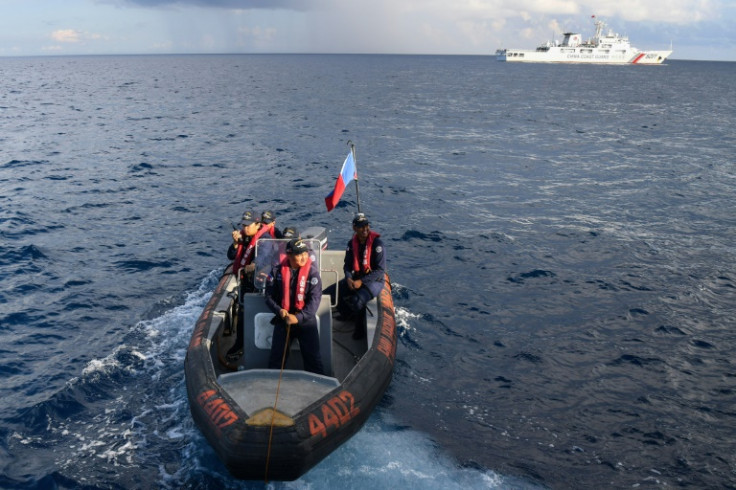EU Backs Philippines' South China Sea Claims, Offers Maritime Security Support

KEY POINTS
- European Council President Ursula von der Leyen emphasized the importance of the 2016 arbitral ruling
- The ruling serves as the basis for peaceful resolution of disputes between the parties involved
- The EU offered to strengthen cooperation with the Philippines on maritime security in the Indo-Pacific region
The European Union (EU) has expressed support for the Philippines' claims in the South China Sea, with European Commission President Ursula von der Leyen affirming that the regional bloc stands prepared to assist the country through measures such as "sharing information, conducting threat assessments and building the capacity of your National Coast Watch Center and your Coast Guard."
In her speech delivered at the Malacañang, von der Leyen described the 2016 arbitral ruling, which had invalidated Beijing's sweeping claims in the South China Sea, as "legally binding."
"The European Union has been very supportive of a free and open Indo-Pacific, because an Indo-Pacific free of the threats of coercion is key to all our stability to our peace, and to the prosperity of our people," she said.
"The European Union underlines that the 2016 award of the arbitral tribunal on the South China Sea is legally binding, and that it provides the basis for peaceful resolving disputes between the parties," von der Leyen added.
"We are ready to strengthen the cooperation with the Philippines on maritime security in the region by sharing information, conducting threat assessment and building the capacity of your national CoastWatch center and your Coast Guard," she said further.
The European Commission president then highlighted that the "rising tensions" in the Indo-Pacific region are a matter of global concern. She emphasized that the challenges to the rules-based order in our interconnected world impact everyone.
"Security in Europe, and security in the Indo-Pacific is indivisible. Our societies pay through higher energy bills through higher food costs," she said. "This is why we are concerned about the rising tensions in the Indo-Pacific."
Earlier this year, President Ferdinand Marcos Jr. made efforts to ease maritime tensions between Manila and Beijing during his state visit to China. He advocated for the establishment of direct communication lines between the two countries to prevent "miscalculations" in disputed waters.
Despite Marcos Jr.'s verbal agreement with Chinese President Xi Jinping, Beijing's vessels have allegedly persisted in their incursions in the West Philippine Sea. This area falls within the Philippines' exclusive economic zone, raising concerns about ongoing tensions and territorial disputes in the region.
In recent years, satellite imagery has provided evidence of China's escalated endeavors to reclaim land in the South China Sea, a process involving the expansion of existing islands and the creation of entirely new ones. These efforts entail the depositing of sand onto existing reefs, and in addition, China has been constructing ports, military installations and airstrips, with a particular focus on the Paracel and Spratly Islands.
Specifically, China has established 20 outposts in the Paracel Islands and seven in the Spratly Islands. One notable instance of militarization is on Woody Island, where China has deployed fighter jets, cruise missiles and a radar system. These developments have raised concerns among regional stakeholders and the international community about the implications for maritime security and stability in the area.
© Copyright IBTimes 2024. All rights reserved.











